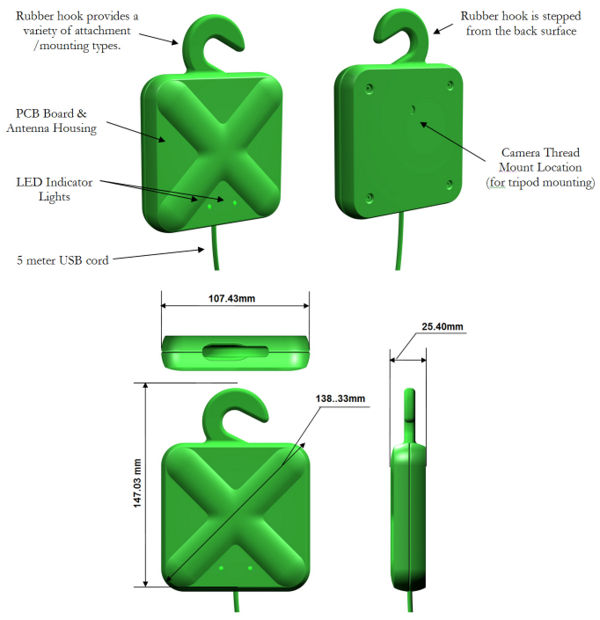Peripherals/Active Antenna
See Product News for availability.
Contents
Location and Intended Users
Users of XOs, inside and outside of school.
Requirement: 5-10 million laptops to be distributed in 2008 with 1 server per 100 laptops and 3 active antennas per server.
Motivation
- Active Antenna’s are critical for the project and are required for the school server.
- Every school server requires 3 Active Antenna’s.
- Better connectivity will generate more use for the XO outside of school
- This particular antenna can extends the range of the mesh thus extending wireless connectivity for everyone in range, not just for the XO plugged into it.
- The mesh network seem to have limited signal within about 100m between two laptops
Advantages
- Extends wireless connectivity for multiply users
- Is a self contained unit which can operate without a laptop, all it needs is a USB power supply which could be solar driven for example.
Disadvantages
- Text
Specifications
- 5 meter USB cable
- 83 and 88 wireless standard (Not currently available in USB dongles)
Technical Information
The active antennas currently consume ~750mW. However power management has not been optimized so to create a more robust system instead.
If you have the active antennas well aligned and they can all "see" each other you get Internet connectivity at both ends of the chain. Below is a graph created by tests made at UFF in Rio, Brazil using that scenario.
Disclaimer: this test was done with all the radios close to each other (employing blinding tables) to enforce the topology and represents the upper limit of what one should expect. That upper limit has been improved in later versions of the firmware, however it is still what you should expect if you create a perfect chain of active antennas. (by perfect here, I mean that there are no "weak" links, i.e. marginal radio links between any two neighboring nodes).
The point of the active antennas is to allow people to experiment inexpensively with scenarios like these - and after people become familiar with what they need to do they can "graduate" to project such as those happening in Vienna – an OLSRv2 system.
Furthermore the "active antennas" are ideal clients for infrastructure like that in Vienna you can get them to point where you want them to, without having to do acrobatics with the XO...
